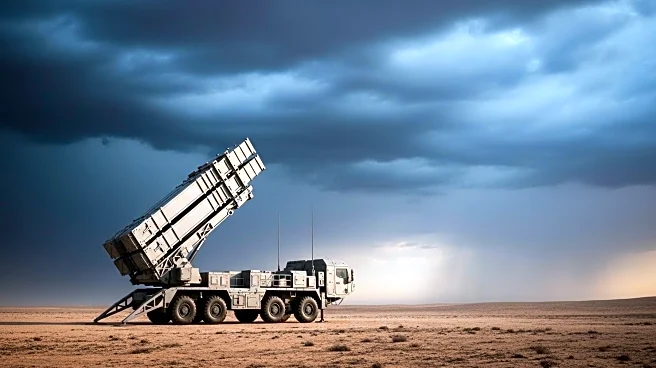What is the story about?
What's Happening?
Iran is reportedly preparing for a potential military conflict, as officials believe the ceasefire with Israel may collapse, according to the Institute for the Study of War (ISW). The assessment from the Washington, DC think tank highlights Iran's Supreme National Security Council's directive for military and civilian officials to designate successors in case of leadership disruption during wartime. This follows a 12-day conflict in June, where Israel launched airstrikes on Iranian nuclear and military sites, leading to Iran's retaliation with ballistic missiles and drones targeting Israeli cities. The ceasefire was brokered on June 24, but tensions remain high. Major General Abdol Rahim Mousavi, Iran’s Armed Forces General Staff Chief, recently inspected military units, declaring the naval forces fully ready for a possible future conflict.
Why It's Important?
The potential resumption of conflict between Iran and Israel could have significant implications for regional stability in the Middle East. Such tensions may affect global oil markets, given the strategic importance of the region in energy production and distribution. Additionally, increased military activity could lead to broader geopolitical ramifications, involving major powers with vested interests in the region. The readiness of Iran's military forces suggests a heightened state of alert, which could influence diplomatic relations and security policies among neighboring countries and allies. The situation underscores the fragile nature of peace agreements and the ongoing volatility in Middle Eastern geopolitics.
What's Next?
If the ceasefire collapses, renewed hostilities could prompt international diplomatic efforts to restore peace and prevent escalation. Major stakeholders, including the United States, European Union, and United Nations, may engage in negotiations or impose sanctions to deter further conflict. Regional powers such as Saudi Arabia and Turkey might also play roles in mediating or influencing outcomes. The situation could lead to increased military presence or exercises by allied forces in the region, aiming to stabilize and monitor developments. The evolving dynamics will likely be closely watched by global leaders and analysts.
Beyond the Headlines
The potential conflict raises ethical and humanitarian concerns, particularly regarding civilian safety and displacement. The historical animosity between Iran and Israel adds complexity to peace efforts, with cultural and religious dimensions influencing public sentiment and policy decisions. Long-term shifts in alliances and power structures could emerge, affecting future diplomatic and economic interactions. The situation also highlights the challenges of maintaining peace in regions with deep-seated historical conflicts.
















